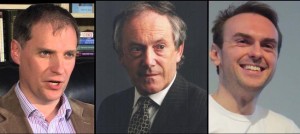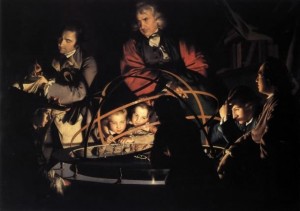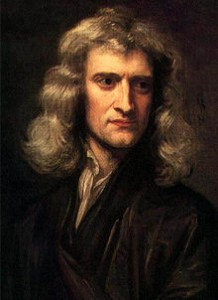These comments follow a discussion on this topic on Justin Brierley’s Unbelievable? programme on Premier Radio with Prof. Peter Atkins, a former professor of chemistry at the University of Oxford, and James Croft, a Humanist activist and PhD student in education at Harvard. Before I provide some comments on the discussion, I’ll give a brief overview of what it was about.
 A popular argument for atheism is that science has explained away God. Perhaps it made sense to believe in God before the advent of modern science, but now we know better. Often Ockham’s razor is appealed to in this context: in light of modern science, God is an unnecessary hypothesis that can be shaved off and discarded. Is this a good argument? As part of a project on ‘Explaining and Explaining Away’ carried out at Ulster University and funded by the John Templeton Foundation, my colleague Dr Mark McCartney and I have investigated this argument by studying the nature of explaining away in general and then applying it to science and God. Here are some of the key points:
A popular argument for atheism is that science has explained away God. Perhaps it made sense to believe in God before the advent of modern science, but now we know better. Often Ockham’s razor is appealed to in this context: in light of modern science, God is an unnecessary hypothesis that can be shaved off and discarded. Is this a good argument? As part of a project on ‘Explaining and Explaining Away’ carried out at Ulster University and funded by the John Templeton Foundation, my colleague Dr Mark McCartney and I have investigated this argument by studying the nature of explaining away in general and then applying it to science and God. Here are some of the key points:
1. Whether one hypothesis explains away another hypothesis (i.e. whether Ockham’s razor can be applied) is a common question that arises in science, history, medical diagnosis, criminal investigations and everyday life.
2. It cannot simply be assumed that explaining away occurs in a given case, i.e. that the truth of one hypothesis removes the need for another hypothesis. Suppose a friend is going to get the train to meet you after work. You go to meet him at the railway station as planned, but he hasn’t turned up yet. This could be because he missed the train or because he was delayed at work, but accepting one of these hypotheses doesn’t undermine the other since they could easily both be true; he could have missed the train because he was delayed at work.
3. In order to determine whether explaining away occurs in a given context you need to determine whether the conditions for explaining away are satisfied. One important question (there are others) concerns the relationship between the hypotheses. If one hypothesis depends on the other (as it does in the example in point 2 above), this counts against explaining away.
4. In the case of God and science, God isn’t appealed to as providing a scientific explanation, but rather a personal or agent explanation. Hence any suggestion that God provides a rival scientific explanation to be compared directly with other scientific explanations is on the wrong track altogether.
5. Proponents of the argument that science explains away God need to show that the conditions for explaining away are satisfied. For example, they need to show that science does not depend on God, but this is an enormous task because many theistic arguments (appealing to God as the cause of the universe or the best explanation of the laws of science or fine-tuning) point to a strong dependence of science on God. These arguments would need to be refuted if the argument against God from science is to work.
6. Typically proponents of the view that science explains away God don’t even try to show that the conditions for explaining away are met. They simply assume that Ockham’s razor can be applied. This is simply begging the question.
7. Given the problems facing would-be defenders of this argument in point 5, the argument loses its appeal. It seemed to offer a straightforward argument for atheism that appeals to science and Ockham’s razor and so circumvents philosophical debates about the existence of God, but it doesn’t.
8. For these reasons, and others, the argument that science explains away God is very unlikely to succeed.
 Now for some initial thoughts on the discussion. Peter Atkins is well-known for defending the idea that science explains away God. When presented with the challenge of having to refute theistic arguments that point to a dependence of science on God, he was more than happy to take up the challenge. How did he go about this? First, he claimed that science explains everything. Prof. Atkins is well-known for this sort of claim too, so I was a bit surprised when he acknowledged that science couldn’t explain mathematics. This might seem like a minor point, but given that a significant aspect of the success of science is due to its use of mathematics, it becomes clear that this is a very important exception.
Now for some initial thoughts on the discussion. Peter Atkins is well-known for defending the idea that science explains away God. When presented with the challenge of having to refute theistic arguments that point to a dependence of science on God, he was more than happy to take up the challenge. How did he go about this? First, he claimed that science explains everything. Prof. Atkins is well-known for this sort of claim too, so I was a bit surprised when he acknowledged that science couldn’t explain mathematics. This might seem like a minor point, but given that a significant aspect of the success of science is due to its use of mathematics, it becomes clear that this is a very important exception.
Of course, he wasn’t impressed with any suggestion that theism might provide an explanation of anything. The reason for this is that theism is a ‘lazy explanation’. I think at least part of what he’s getting at here is that theistic explanations aren’t like scientific explanations and that they are rivals to scientific explanations that, if accepted, would stop science. But a) theistic explanations are personal explanations not scientific ones and b) he’s simply assuming that theistic and scientific explanations are rivals. That, of course, is what the whole debate is about so it can’t simply be assumed.
Furthermore, the whole strategy of trying to defeat theistic arguments by claiming that science explains (almost) everything once again simply assumes that scientific explanations remove the need for theistic explanations. Overall, I think this strategy fails to take seriously the challenge of showing that the relevant conditions for explaining away are met. It simply presupposes that science explains away God.
James Croft took a different tack. While recognizing some of the challenges involved in showing that explaining away takes place and accepting that scientific explanations don’t rule out personal explanations in general, he questioned whether appealing to God could provide meaningful explanations at all. The reasons for this seem quite unconvincing. One concern is that theistic explanations don’t provide us with a mechanism. But a) often scientific explanations can be very successful even when the mechanism is unknown or disputed (Newton’s theory of gravitation and quantum mechanics provide clear examples) and the same is true for many historical explanations which appeal to conscious intentions of agents (without worrying at all about the mechanisms involved in intentional actions) and b) since theism provides a personal explanation, this leaves open the possibility that science might be able to provide the mechanisms in some cases.
 Much more importantly, however, in making this move James is not appealing to science in his objection to God, but to his own philosophical predilections. Whatever the merits of his objections, it is not science that is doing the work and so it isn’t relevant to the argument that science explains away God.
Much more importantly, however, in making this move James is not appealing to science in his objection to God, but to his own philosophical predilections. Whatever the merits of his objections, it is not science that is doing the work and so it isn’t relevant to the argument that science explains away God.
Audio clip: Adobe Flash Player (version 9 or above) is required to play this audio clip. Download the latest version here. You also need to have JavaScript enabled in your browser.
